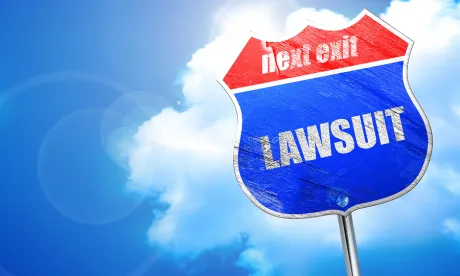In a divided panel decision, the US Court of Appeals for the Federal Circuit concluded that a merger clause in the parties’ settlement agreement did not extinguish a prior covenant not to sue. Molon Motor & Coil Corp. v. Nidec Motor Corp., Case No. 19-1071 (Fed. Cir. Jan. 10, 2020) (Lourie, J) (Reyna, J, dissenting).
In 2004, Molon sued Nidec’s predecessor, Merkle-Korff, for infringement of Molon’s patent. In response, Merkle-Korff filed declaratory judgment counterclaims against two other Molon patents, seeking declarations of invalidity and non-infringement. Molon subsequently offered Merkle-Korff a covenant not to sue (2006 covenant) on the counterclaim patents. The covenant provided a unilateral non-exclusive license covering products existing at the time with no limits to specific markets.
Litigation continued as to the initially asserted patent. A year later, the parties entered into a settlement agreement (2007 settlement) in which Merkle-Korff made a lump sum payment in exchange for a license to more than a dozen patents, including all three of the patents that were the subject of the infringement allegations and declaratory judgment counterclaims. The 2007 settlement provided a bilateral agreement granting an exclusive license in a particular market covering dozens of patents and both current and future products. The exclusive license in the 2007 settlement was limited to the “Kinetek Exclusive Market” and provided a right to pursue infringement claims outside of that market.
The 2007 settlement also contained a merger clause, which stated that “[a]ll prior and contemporaneous conversations, negotiations, possible and alleged agreements, representations and covenants concerning the subject matter hereof, are merged herein and shall be of no further force or effect” (emphasis added). Merkle-Korff later merged with Nidec. At issue in the present case was whether that merger immunized Nidec from liability. Molon alleged that Nidec infringed one of the patents that was the subject of the declaratory judgment action settled by the 2006 covenant. Thus, this case turned on whether the two agreements concerned the same subject matter.
Molon argued that the subject matter of both agreements was simply the right to practice the patent in issue, while Nidec asserted that the types of license, number of patents, and products included in each agreement more narrowly defined the subject matter of the agreements.
Applying Illinois law pursuant to a choice-of-law provision, the Federal Circuit analyzed the 2007 settlement de novo and applied the “four corners” rule. The Court looked to Illinois cases covering the spectrum of “subject matter” breadth, ranging from a case in which two contracts “using trucks” were not the same subject matter, to Midwest Builder Distrib. v. Lord & Essex, in which the court found merger between a first broad contract to supply goods on credit and a subsequent (narrower) agreement to sell goods for homes in specific subdivisions. The Court noted that conflicting provisions in the earlier agreement were “preempted and superseded” by the later agreement.
The panel majority found that the 2006 covenant and 2007 settlement did not conflict and the result was therefore not ruled by Midwest Builder. More specifically, the Court found “substantial differences between the agreements,” found that the 2006 covenant did not “[concern] the subject matter” of the 2007 settlement, and concluded “that the language of the merger clause in the 2007 Settlement did not expressly extinguish the 2006 Covenant.”
Finally, the Federal Circuit majority considered whether, even without an express extinguishment, the merger clause in the 2007 settlement was evidence that the parties intended to extinguish the earlier 2006 covenant. The Court looked to Illinois case law, in which merger was only applied to communications and writings that were part of the negotiations leading up to the later contract. Noting the parties’ concession that the 2006 covenant was not a part of negotiations of the 2007 settlement, the Court concluded that such evidence was outside of the merger clause’s coverage. The Court affirmed the district court’s holding that the merger clause in the 2007 settlement did not extinguish the 2006 covenant.
In a lengthy dissent, Judge Reyna disagreed with the majority’s fundamental findings. Judge Reyna opined that under Midwest Builder and that “the heart of the subject matter” was simply the payment obligations between the two companies and therefore, under the merger clause of the 2007 settlement, the 2006 covenant was extinguished. Judge Reyna concluded that the majority applied an “unduly heightened standard” of the merger doctrine not supported by Illinois law. He criticized the majority’s requirement that the agreements be a part of the same negotiations, arguing that they merely need to relate to the same subject matter, as provided by the parties’ merger clause.
Finally, Judge Reyna noted multiple instances where the majority misinterpreted the language of the 2007 settlement, explaining that the two agreements did conflict. Reyna specifically noted that the 2006 covenant provided no market limitations to practice the patent, while the 2007 agreement prohibited use outside of the Kinetek Exclusive Market. Judge Reyna also noted that the only covenant in place at the time of the 2007 settlement was the 2006 covenant, and concluded that the 2007 merger clause was therefore presumptively referring to the 2006 covenant.



 />i
/>i
